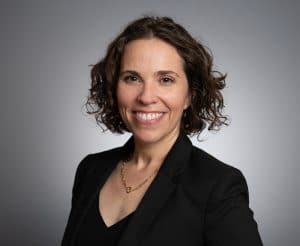Healthcare Communications
“So, do you have any questions for me?”
Hearing this from a healthcare provider at the end of an appointment can often cause your mind to either race or go blank. Surely, you have questions, but sometimes they come to you just as the provider walks out the door.

Communicating with healthcare providers can be difficult; our current healthcare system offers limited time and opportunity for both doctor and patient to connect in a meaningful way. According to a study conducted by the University of Southampton and published in the American Journal of Medicine, ineffective communication can actually create anger and distress, physiological conditions that could worsen illness.
Preparing yourself, or helping a loved one, to gather, share, and receive the right information, is key to making the most out of any visit to a doctor. Here are some tips on being an effective communicator in any healthcare situation:
1. Think ahead. Before your appointment, take time to consider what concerns you have. If you have any symptoms, think of as many details as you can to share with your provider.
2. Bring notes to remind yourself of the most important things to discuss. Let your provider know at the start of your visit that you’ve prepared some questions. This can help them to tailor your appointment to meet your needs.
3. Request that they explain things in plain language and, at the end of the visit, be sure to state back what you heard, to confirm your understanding.
4. Be realistic about the time constraints. If you need more time, ask your doctor how you can arrange to have a longer conversation.
Empowering yourself with good communication skills can have positive results in healthcare outcomes and patient satisfaction.
 Contributor: Lauren Schwabish, M.S., CCC-SLP, is the owner of Neuro Speech Services, a private practice based in Northern Virginia, specializing in person-centered assessment and treatment of cognitive-communicative disorders related to stroke, brain injury, concussion, and other neurologic conditions. Lauren received her Bachelor of Science degree with Honors in Communicative Disorders from the University of Wisconsin-Madison and holds a master’s degree in communication sciences from Hunter College of the City University of New York. She is licensed in the Commonwealth of Virginia and is a certified member of the American Speech Language Hearing Association. She has over 21 years of experience working in hospitals and acute rehabilitation centers and is passionate about providing meaningful and accessible health education about the brain to patients, families, and health care professionals. Lauren is an engaging public speaker on the topics of memory and thinking skills, committed to empowering communities with evidence-based information and best practices in brain health behaviors.
Contributor: Lauren Schwabish, M.S., CCC-SLP, is the owner of Neuro Speech Services, a private practice based in Northern Virginia, specializing in person-centered assessment and treatment of cognitive-communicative disorders related to stroke, brain injury, concussion, and other neurologic conditions. Lauren received her Bachelor of Science degree with Honors in Communicative Disorders from the University of Wisconsin-Madison and holds a master’s degree in communication sciences from Hunter College of the City University of New York. She is licensed in the Commonwealth of Virginia and is a certified member of the American Speech Language Hearing Association. She has over 21 years of experience working in hospitals and acute rehabilitation centers and is passionate about providing meaningful and accessible health education about the brain to patients, families, and health care professionals. Lauren is an engaging public speaker on the topics of memory and thinking skills, committed to empowering communities with evidence-based information and best practices in brain health behaviors.
